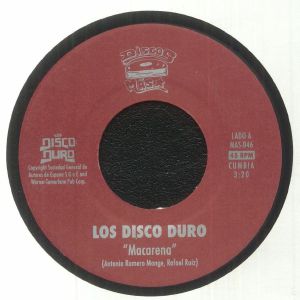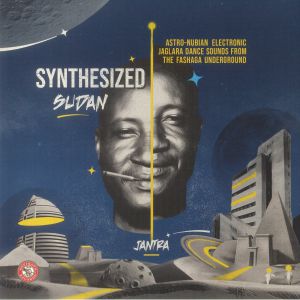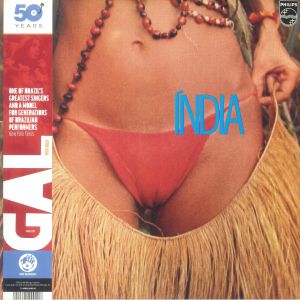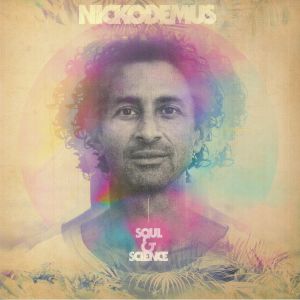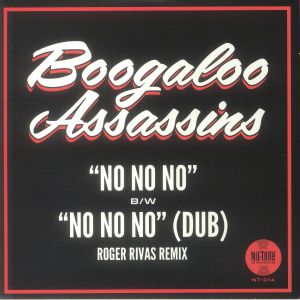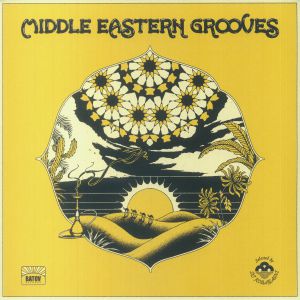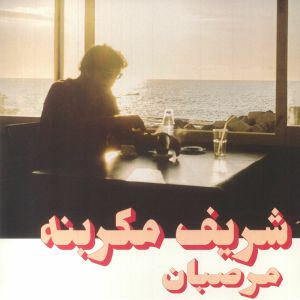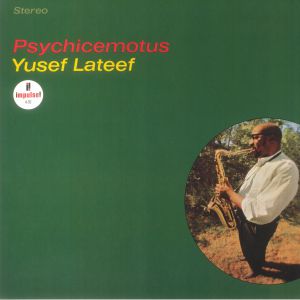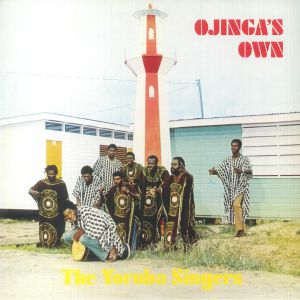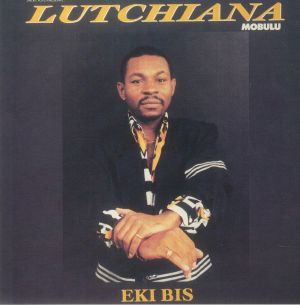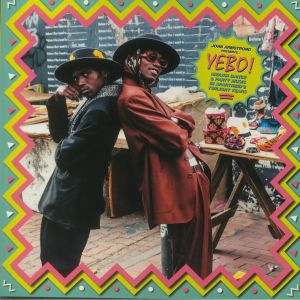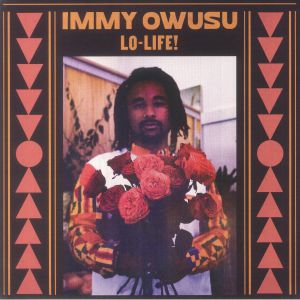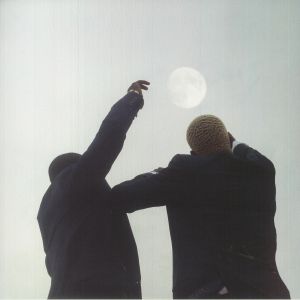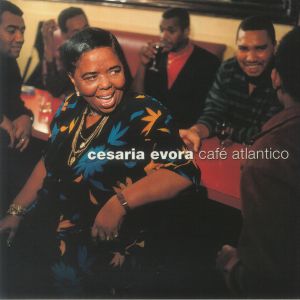
Juno Recommends International
Juno Recommends International: August 2023
Read more...
1
Review: Los Disco Duro are all about offering up "analogue synthesizer interpretations of Latin classics" and have been doing so now for almost a decade, most often on the Disco Bas label in the US. Their reworks and reimaginations know no stylistic bounds as price here with an intergalactic-sounding take on kiddie-disco fav 'Macarena.' The vocals are reusing through a talk box, the vamping chords and drums are fat the synths pixelated. 'Musica Chiquita' is then a fresh deep house cut with starry eyed synths and planning bas that is, frankly, brilliant.
in stock $17.48
2
Cat: OSTLP 014. Rel: 03 Jul 23
International
Review: Proving that the wonder of African electronic music unfolds and evolves on its own terms, Ostinato present the sound of Jantra to the world. Reportedly performing in the border town of Gedarif and on the 'outskirts of outskirts' of Khartoum in his native Sudan, Jantra uses a Yamaha keyboard to jam out endless street rave sessions to feverish crowds. He doesn't have rehearsed songs, just freestyle playing of sparkling, cosmic melodies elicited from an instrument he had to get customised at a Khartoum market so it would fit the mode of Sudanese melodies. The label followed Jantra to some of the parties he played, and merged earlier cassette recordings with new sessions to create a kind of hybrid release which introduces his music to the world in spectacular fashion.
...Read more
out of stock $27.74
3
Review: The Yoruba Singers reinterpreted Guyana folk music and infused it with Afro-roots and culture on this double A-side 7". Now for the first time every it gets reissued on vinyl. This release came a year after the group's debut album Ojinga's Own and were recorded in Barbados and released on the Green Shrimp label. They were big regional has with dancers lapping the grooves throughout the Caribbean and South America. The sounds are said to be the building blocks for what went on to become known as the Champeta Criolla sound in the Caribbean coast of Colombia.
...Read more
in stock $14.15
4
Review: Much like his countryman Tim Maia, Brazilian samba king Jorge Ben loved to put out plenty of albums, and loved to name them all pretty much the same thing. This one though has its own unique name and a sound that is just as singular. It finds him bring his acid sounds to swaying and shuffling pervasive grooves with lush vocal harmonies, his own real braking ad libs and elements of Western sound from rock to soul. Originally released in 1978, it features onset about footballers, a girl's social climbing, love songs with flutes and plenty more.
out of stock $18.31
5
Cat: MRBLP 282. Rel: 10 Jul 23
International
Review: Gal Costa is rightly considered one of the leading lights of Brazil's tropicalia scene, not least from her golden period in the late 60s, and the legacy of the late singer lives on with this reissue of one of her finest albums by Mr Bongo. India was Costa's fourth album, originally released in 1973 and instantly courting controversy after the Brazilian military censored the cover due to the shot of Costa's bikini and little else. Of course such imagery is comparatively tame these days, and instead we can focus on the music which is some of the finest MPB and tropicalia you could ever wish to hear, all led by Costa's mesmerising voice and backed by true Brazilian greats including Gilberto Gil.
...Read more
out of stock $30.80
6
Review: American DJ and producer Nickodemus commands an eclectic and global sound, mixing EDM with organic instrumentation and vocals through a cross-cultural musical lens. Coming to his very own Wonderwheel Recordings, Soul & Science is a befitting name thanks to the seeming fusion of electronically-programmed dance beats and regional organics, but this is also one of those albums that could also potentially shatter the hard border between the two connotations. Vocal contributors and instrumentalists from Sudan (Alsarah), Cameroon (Pat Kalla), the Caribbean (Hector "Tempo" Alomar) and Cuba (Quantic) make for a floor-shakingly diverse and humanist appreciation of the collective dance-spirit.
...Read more
in stock $11.93
7
Review: Boogaloo Assassins are an LA-based troupe playing Latin boogaloo, salsa, and soul music. Case in point; their latest single here comes as a cover of Dawn Penn's classic reggae song 'No No No', as well as a Roger Rivas dub mix on the B. Interspersed with lyrics in Spanish rollicking salsa melodies and rhythms on piano and shaker , it's certainly a riveting take on the pop standard. Rivas' remix is just as gratifying, coming packed with subtle echoes and springs. Sure to be in hot demand, the single is pressed on translucent red vinyl and is limited to one per customer. 'No No No' two, electric boogaloo...
...Read more
out of stock $15.53
8
Review: Batov Records label co-founder DJ Kobayashi has dug deep in his back catalogue of Middle Eastern grooves for this superb double album. The tracks span 2015 to now and are taken from the label's well received series of 7" singles released under the same name. There are new tunes, edits of classic, never before heard gems and plenty in between, all of which have made their way into the bags of adventurous DJs from Gilles Peterson to Gideon Coe. There is desert funk, cosmic star gazing, shamanistic funk, spooky synth sounds and plenty more here that will improve your record collection by a guaranteed 76%.
...Read more
out of stock $32.46
9
Review: Charif Megarbane is a prolific producer and instrumentalist from Beirut and he is back once again with Marzipan, a first contemporary full length on Habibi Funk. It is a deep trip into his musical universe which mixes up influences from Lebanon and the Mediterranean and artists such as Ziad Rahbani, Ahmed Malek and Issam Hajali. All 17 tracks show off his mastery of composition as much as antigen else - freewheeling grooves from gypsy jazz to ethno-funk that draw on the energies of a bustling market, the lush atmospheres of a sun beach resort and various other of his surrounding soundscapes. It is hugely transportative and excellent escapism.
...Read more
in stock $31.35
10
Cat: VBRTMRST 01. Rel: 17 Jul 23
International
Review: Yusef Lateef's brand of jazz is surely some of the easiest to love. That's not to say it's simplistic in any way, but rather than his affinity for groove and melody is just an instant pleasure - a smouldering mood which takes you somewhere far and fantastic without the need to raise the pulse. 1965 LP Psychicemotus is another masterpiece from a man whose career is nothing but masterpieces, leading in with the winding wonder of the title track led by Late's signature flute and backed up by Georges Arvanitas on piano, Reggie Workman on bass and James Black on drums. Whether you're a completist filling a gap or a jazz-curious bystander, this album will never let you down.
...Read more
out of stock $33.28
11
Review: Yoruba Singers were musical pioneers who cooked up a unique fusion of cultures and influences that were said to be a pre-curser the Champeta Criolla sound in the Caribbean coast of Colombia. They infused Guyana folk music with Afro-roots and culture most notably on this, their debut album, Ojinga's Own. It made them into stars throughout the Caribbean and South America and led to standout singles like 'Basa Bongo' which is also being repressed this month. This album has been remastered for the first ever vinyl reissue and makes for gloriously sunny listening with organic drums and percussion, majestic wind and string sounds and carefree vibes.
...Read more
out of stock $21.39
12
out of stock $16.92
13
Review: 'Eki Bis' is a quintessential example of fresh modern-day soukous and zouk. Despite being first laid down by Congolese singer Lutchiana Mobulu in 1989, the single sounds just as fresh and relevant for the present day as it did back then, reissed via Hot Casa here for a crisp and infectious new reversion. The title track is emblematic of this enough, with high-pitched guitar noodlings and ecstatic raps delivered over a sizzlingly-hot beat skillet. Julien Lebrun's edit catapults the track into subtle space, adding careful echoes and refractions.
out of stock $17.75
14
Review: So many of the compilations that BBE put out are vital history lessons as well as great listening experiences. This one is another case in point as it finds music historian, DJ and daytime party promoter John Armstrong - who has put together more than 200 compilations - digging deep to offer up an alternate take on the famous bubblegum sounds that came out of Black South Africa towards the end of the apartheid years. Yebo! Rare Mzansi Party Beats from Apartheid's Dying Years is a superb showcase of diverse sounds created by the youth of the day as a means of escape. There is already talk of a second volume, which we're very much ready for after hearing this one.
...Read more
out of stock $32.90
15
Cat: 405053 8713152. Rel: 17 Jul 23
International
out of stock $29.95
16
Review: Immanuel 'Immy' Kwabena Dreessens-Owusu is based in Torquay but is of Ghanaian-Dutch heritage. His musical upbringing straddled the worlds of rock'n'roll and the West African culture of his roots. His grandfather is a legendary musician, Koo Nim, and this debut album was recorded with his father Kojo Noah Owusu and Ghanaian drummer Julius Sackey. Across nine glorious cuts he mixes highlife and Afro rhythms, Afro rock and psychedelic sounds with spiritual vocals into an energising and cathartic brew that is steeped in classic and authentic styles but with plenty of modern perpsective.
...Read more
out of stock $29.68
17
Review: Mande jazz ensemble Balimaya Project return with much anticipated second album When The Dust Settles on New Soil in partnership with Jazz re:freshed. The group has a magical big band sound that is expanded on here with plenty of personal expression running the emotional gamut from rage to love, grief to joy. Once again they combine the African rhythms of their roots with contemporary London jazz energy as they celebrate Black power and community togetherness. Composer, arranger and Djembe player Yahael Camara Onono leads the group with Afronaut Zu, Obongjayar and Fassara Sacko adding vocals over the advantageous folkloric rhythms.
...Read more
in stock $26.07
18
Review: The 1999 album by the late Cape Verdean singer Cesaria Evora, Cafe Atlantico, is considered one of the greatest of its time, owing to its unmistakably ethereal sound. Adding to the mythology, Evora was known as the "Barefoot Diva" for her habit of performing without shoes. The album features songs in Portuguese, Spanish, and Creole, influenced by Afro-Cuban, Brazilian, and Cape Verdean rhythms. Cuban musicians - the likes of Tata Guines and Barbaro Torres, Brazilian singer Caetano Veloso, and Senegalese singer Ismael Lo - appear throughout this exquisite, now reissued via MOV.
...Read more
out of stock $41.33
19
Review: Eje Eje - the solo project of one Itamar Kluger - blends tropes of Middle Eastern, Mediterranean, funk and dub music to produce thoroughly danceable multi-instrumental trances, as is evidenced by their compelling new release here, 'Five Seasons'. Springboarding from his former work with the Satellites, Kluger deploys his skills as Eje Eje to incantate a special blend of perspectives, reflecting his own interest in humankind's subjective perception of reality. Informed by national and global cultural movements and traditions, he insists on collectively creating and sharing stories, at times to explain the unexplainable.
...Read more
out of stock $25.25

 USD
USD




